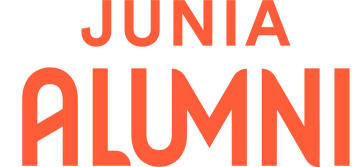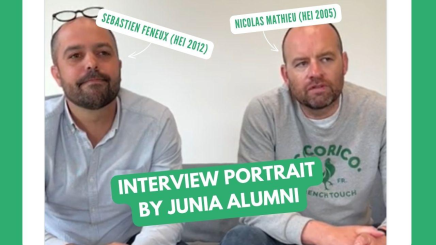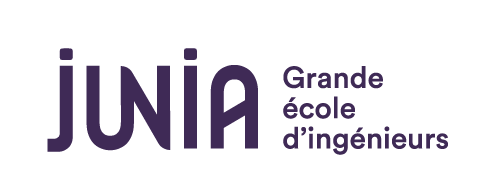News

Portrait of Agathe LEROUX (HEI 2018)
- HELLO, can you briefly introduce yourself?
Agathe LEROUX, I'm 28 years old, I'm from the Paris region, for the last four years I've lived in Dakar and in a few weeks I'll be moving to South Africa. I'm an engineer in PCE, Process Chemistry and Environment, (but I don't think it's called that anymore) and I specialize in natural resource management and local governance.
- We're going to take a trip down memory lane. Can you tell us about your university career: training, specialization, associative life, projects, internships?
I did a Bac S and then joined HEI in the first year of preparatory school, choosing the physics specialization. I didn't know exactly what I wanted to do, but I was very interested in protecting the environment. It was after a discussion with Mr LEGHIE that I finally decided to specialize in PCE. I did a 6-month Erasmus program in Germany during my 5th year, taking courses in water management, water treatment and environmental protection. And of course, all my classes were in German.
In terms of internships, I did my first classic work placement on a building site. It was a slightly atypical experience, as it was a very masculine environment I didn't know anything about, which isn't necessarily obvious when you're an 18-year-old woman.
During my engineering studies, I did a 3-month internship at Veolia Water Research and Innovation, working on a project to improve wastewater treatment. I then did my end-of-study internship at Danone Water in Evian as coordinator of a "Food Safety and Food Security" project. The aim was to find out how to protect the group's water resources from voluntary or involuntary pollution.
As far as school life and associations are concerned, I was listed in my first year, second year we were elected BDE (HEI JACKER) and for my third year I joined the cap solidaire. I was also part of the rowing association, and we organized several university competitions.
- What's your best memory of your studies at JUNIA (HEI, ISA and ISEN Lille)?
My best memory is the BDE lists. The community life at HEI is incredible. Talking to friends from other schools, you realize that we've been lucky, because there are all kinds of associations possible and unimaginable. There's something for everyone, everyone creates their own bubble, and it's pretty inclusive for everyone.
- When you were studying, did you already know what you wanted to do and what job you were aiming for?
I had no idea, and even now I don't have a clearly defined job. That's because I chose to focus on a particular field and theme rather than a specific job.
- What has been your career path since graduating?
When I graduated, I first extended my end-of-studies internship at Danone with a 6-month fixed-term contract. Then I decided to move to Dakar, Senegal, without a job, because I wanted to get out of my comfort zone and experience new things. But before I left, I had already found a volunteer job because I wanted to get involved as soon as I arrived. I found one with an NGO, helping them with their access to drinking water.
Shortly after my arrival (1 or 2 months), I found a VIE assignment. I started out as a consultant because of the COVID pandemic, but continued with a two-year VIE. This VIE was for a French consulting firm, CACG, specializing in rural water management. I represented the company in Senegal and was also involved in project management.
This was followed by a one-year contract with an American-Senegalese company, myAgro. This is a social enterprise dedicated to empowering small-scale farmers, particularly women, in order to reduce poverty and increase food security.
- What are the main tasks in your job?
My last assignment was with myAgro, a company that helps farmers manage their income and offers access to better seeds and fertilizers, as well as agricultural training.
I held a position as Associate Program Specialist. I managed a project whose aim was to make farmers aware of myAgro's offers, to encourage them to join our program, and thus, for the company, to increase its customers/beneficiaries. My role was very cross-functional, overseeing the national roll-out of the project, which involved liaising between the global and local teams, managing field staff, analyzing data, implementing training and communicating internally and to donors. But the most important thing was to ensure that each team was informed of the new methods and approach, and that they were properly trained.
At the same time, I also co-created a project with the Surfrider Foundation Senegal on seawater quality in Dakar. We managed to secure funding from the French and Portuguese embassies. The aim is to set up water quality monitoring in Dakar's high-stake recreational areas, to ensure that people can use the water without risk to their health or the environment. The project began in June 2023, and as I'm in France, I'm continuing the monitoring remotely.
I'm currently in a period of adjustment, as my husband (also a former Heiein) and I will soon be leaving for South Africa as part of his work.
- What role did your network (school, alumni association, family, professional) play in your career development?
Yes, of course the network plays a role, because you're influenced by your environment and the people you meet. When you're lucky enough to meet people who are open-minded, caring and who share their experience and advice, you have to seize the opportunity because you can discover different perspectives. But don't let yourself be convinced and forget your own desires.
Personally, it was thanks to my family network that I managed to find my first two internships, and I'm grateful for that.
Abroad, I found that belonging to a network like HEI, for example, created a bond and immediate mutual support.
Sometimes, students contact me on LinkedIn or by e-mail with various questions, especially as I'm part of the Alumni network, and I'm delighted to be able to answer their questions, or at least I try to. It's something I've done myself, and continue to do, to get feedback on my experiences or when I'm looking for internships or jobs. If I can return the favor, I'll gladly do so.
- As a female engineer working in a professional environment that is often considered and stereotyped as masculine, would you have any advice for current female students considering a similar career path?
I'd say don't be afraid to assert yourself. It's sad to say, but as a woman in a professional environment that's often considered and stereotypically male, you have to be firm if you want to be heard/respected.
It's not easy at first, and you may be afraid or unsure of how to go about it, but in the end you get the hang of it and, above all, you don't get used to it. You mustn't hesitate to fight to be heard in the same way as a man. You have to have confidence in yourself. It's no accident that we've come this far, we're as legitimate as anyone else.
The environment in which I worked was very male-dominated, but the rest of my experiences were mixed. For example, in Dakar, working as a young woman in a country where it's mainly men who work and are respected isn't easy. However, we mustn't let ourselves be destabilized or take certain words personally; we have to know how to get over it in order to concentrate on our professional mission. But it's something to bear in mind before working abroad.
- Another message to pass on?
I'd say that an engineering degree is a title, not a profession: you can do whatever you want with it.
People often say to me "ah, but now you're going to be able to find an engineering job where you're going?" but engineer doesn't mean a thing.
Around me, my friends all have completely different jobs, even though we all have the same engineering degree.
An engineering diploma can be used everywhere, in every field, even if you want to create a sweater brand or a restaurant, you use the skills you acquired during your engineering course, even if it wasn't obvious at the outset.
Overall, it's up to us to give this diploma the direction and meaning we want.
 1
1















No comment
Log in to post comment. Log in.